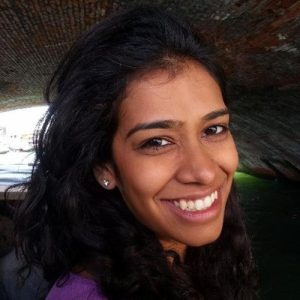Ashmita is a full-time DPhil student currently researching the role of STEM-focused Studio Schools in English Education. Before joining the department, Ashmita pursued a Master’s in Education Policy and Leadership Studies, from Boston University, Boston, MA, USA.
Tell us more about the research you are studying as part of your degree?
My study focuses on four STEM-specific Studio Schools, and explores their role in the education landscape from the perspective of school administrators, sponsors, staff and students. It seeks to understand how the Studio School model has evolved over time and how this may have influenced the development of these schools. This study is also interested in the ways in which policy interacts and impacts the development of this role. Methods include semi-structured interviews with the identified actors at each individual school; semi-structured interviews with founding members of the Studio School model; and document analysis of key government and school documents.
What would you like to do once you’ve completed your DPhil?
I am hoping to work for a thinktank or a non-profit organisation, to influence policy pertaining to STEM education.
What do you most value about the teaching at the department?
The teaching at the department encourages students to voice their ideas and opinions on topics which in turn facilitates lively discussion, which I have found to be the most useful way to learn about new topics. The courses require students to be fairly self-motivated, which helps instill and reinforce the analytical and research skills required as a PhD student.
What’s the community like at the department?
There is a diverse range of interests among staff and students at the Department of Education. The staff and students (particularly in my research centre) share research ideas, and encourage discussion, and are very open and willing to help you work through problems and questions that one may have. If there isn’t someone in the department who is able to talk through a particular education topic, they are always happy to direct you to a different resource for help. The administrative staff at the department are always happy to support the needs of students and never turn away any questions, no matter how silly they may seem to you.
How do you get involved in other research activities within the department and what are they?
I have found the best way to get involved in research activities is to keep your ear to the ground about the topics that interest you and talk to different sets of people (both in and outside the department) about these interests. Coffee mornings, held every Wednesday at the department, are a great starting point to meet people from other group and to discuss shared interests. Also, don’t forget- your research group or centre may be running research projects that would require assistance! So far, I have undertaken the following additional roles and responsibilities alongside my studies whilst the department:
- SKOPE Research Centre (Research Assistant and Project Administrator, December 2015 – present)
- Co-lead for research to understand and evaluate the implementation of the CREATE employability framework in Studio Schools (Grant :Understanding the CREATE Framework in Studio Schools, The Edge Foundation 2018) Co-Investigator with Dr James Robson. Principal Investigator: Professor Ewart Keep.
- Ongoing support for research activities of the SKOPE Research Centre via project management and budget coordination of the go_girl : code + create project (Research Assistant January 2017 – present)
- Co-design and delivery of a curriculum for introduction to programming and coding to the participating group of local young women Not in Education, Employment or Training (NEET)
- Investigation and review of similar programmes around the world to understand the landscape of options offered to NEET young women
- Examination Reform: The Impact of Linear and Modular Examinations at GCSE (Research Assistant January 2017 – present). Project in collaboration with Ofqual.
- Analysis and reporting of teachers’ perceptions of the multiple policy changes that have impacted GCSE examinations since 2015.

